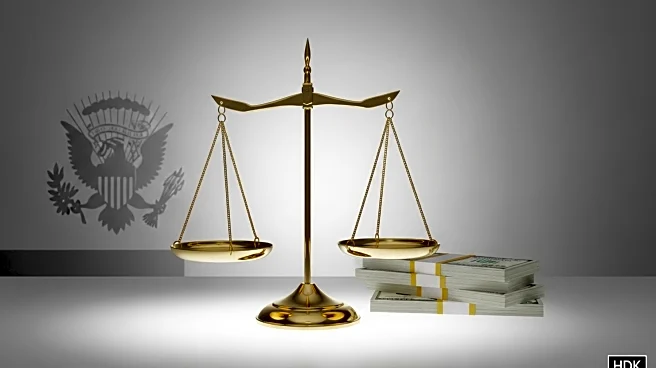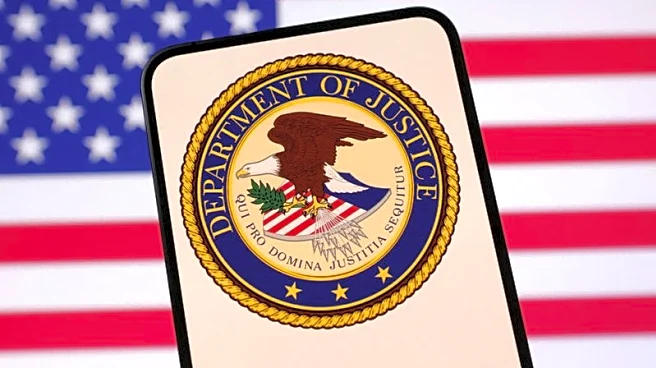What is the story about?
What's Happening?
President Trump has informed House Speaker Mike Johnson of his decision to cancel $4.9 billion in congressionally approved foreign aid using a 'pocket rescission.' This tool allows the president to request Congress not to spend approved funds near the fiscal year's end, effectively bypassing legislative action. This marks the first use of pocket rescission since 1977. The funds, intended for the State Department and USAID, will go unspent as the fiscal year concludes on September 30. The Trump administration argues that this move is legally permissible under the 1974 Impoundment Control Act, which allows the president to propose canceling funds approved by Congress.
Why It's Important?
The use of pocket rescission by President Trump could have significant implications for U.S. foreign policy and budgetary control. By bypassing Congress, the administration may set a precedent for future executive actions that could alter the balance of power in budgetary decisions. The cancellation of foreign aid may impact America's global standing and its ability to support international development and humanitarian efforts. This decision could lead to reduced access to essential services for foreign populations, potentially affecting diplomatic relations and America's reputation abroad.
What's Next?
The Trump administration's use of pocket rescission may prompt legal and political challenges, as Congress and other stakeholders assess the implications of this executive action. There may be debates over the legality and ethical considerations of bypassing legislative approval for budgetary decisions. Additionally, the impact on foreign aid programs could lead to discussions on the future of U.S. international assistance and its role in global diplomacy.

















